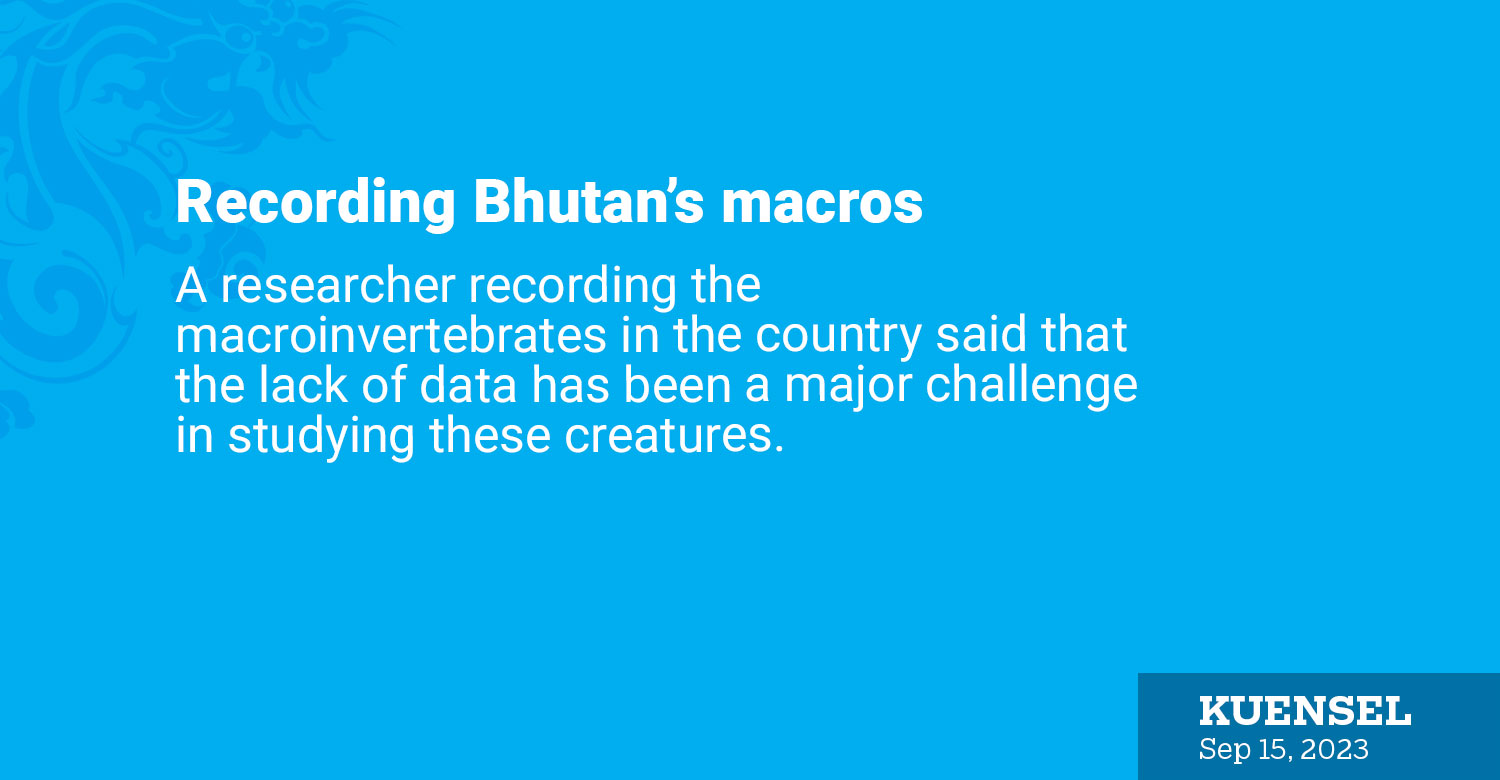… experts face challenges in conducting research
Yangyel Lhaden
A researcher recording the macroinvertebrates in the country said that the lack of data has been a major challenge in studying these creatures.
Macroinvertebrates, also known as macros, are animals lacking a backbone and large enough to see without the use of a microscope. They are cold-blooded and the aquatic organisms are often larval or nymphal forms of other terrestrial species.
To identify macroinvertebrates, a former lecturer at the College of Natural Resources, Tshering Dorji used the DNA barcoding method and he used his samples against a reference DNA barcode database called Barcode of life data system (BOLD) to identify the species.
He DNA-barcoded 350 specimens collected from 30 streams along the Punatsangchhu basin. Twenty-three of his specimens had a 100 percent match with BOLD, of which only seven were unique species and only five were identified to the species level. The other two were morphospecies, indicating that he could not identify them at the species level.
Tshering Dorji said that there were not adequate reference data to identify macroinvertebrates using DNA barcodes. “However, now we at least have some recorded data which could help future researchers.”
Tshering Dorji’s research was one of the six research proposals supported under the PEER programme of the Bhutan Foundation, a US-based not-for-profit organisation whose mission is to support the people of Bhutan to reach their full potential by developing local capacity and facilitating global partnerships.
Research from more than a dozen experts pointed to various challenges in conducting researches in the country from lack of data to community support.
Six research papers, supported by PEER includes research projects covering diverse areas such as sustainable livelihoods, environmental conservation, and public health, have been implemented by Bhutanese academic and research institutions with financial support from the United States Agency for International Development.
These institutions include Sherubtse College and the College of Natural Resources at the Royal University of Bhutan, Khesar Gyalpo University of Medical Sciences of Bhutan, and the Ugyen Wangchuck Institute for Conservation and Environmental Research, which received two research grants each.
The other two research papers presented on the first day of symposium were ‘Enhancing Food Security of Smallholder Farmers in Bhutan Through Building Capacity in climate-smart agriculture’ and ‘Impact of Climate Change on Alpine Timberline and its Socioeconomic Impact on Highlanders in Bhutan’.


